
Lisa Grossman is the astronomy writer for Science News. Previously she was a news editor at New Scientist, where she ran the physical sciences section of the magazine for three years. Before that, she spent three years at New Scientist as a reporter, covering space, physics and astronomy. She has a degree in astronomy from Cornell University and a graduate certificate in science writing from UC Santa Cruz. Lisa was a finalist for the AGU David Perlman Award for Excellence in Science Journalism, and received the Institute of Physics/Science and Technology Facilities Council physics writing award and the AAS Solar Physics Division Popular Writing Award. She interned at Science News in 2009-2010.

Trustworthy journalism comes at a price.
Scientists and journalists share a core belief in questioning, observing and verifying to reach the truth. Science News reports on crucial research and discovery across science disciplines. We need your financial support to make it happen – every contribution makes a difference.
All Stories by Lisa Grossman
-
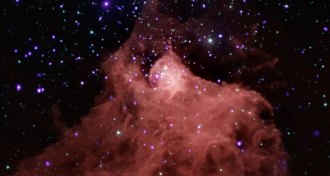 Astronomy
AstronomyIce in space might flow like honey and bubble like champagne
Zapping simulated space ice with imitation starlight makes the ice act more like a liquid than a solid, meaning similar ices in space might be good places for organic chemistry.
-
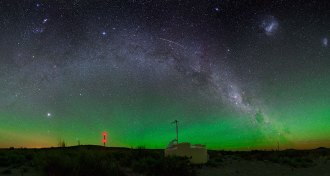 Astronomy
AstronomyUltrahigh energy cosmic rays come from outside the Milky Way
The biggest cosmic ray haul ever points toward other galaxies as the source of the rays, not our own.
-
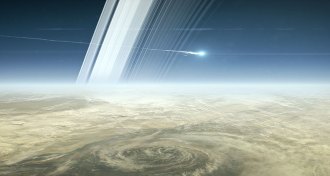 Astronomy
AstronomyR.I.P. Cassini
After 20 years, nearly 300 orbits and pioneering discoveries, the Cassini spacecraft plunges to its death in Saturn’s atmosphere — taking data until its very last breath.
-
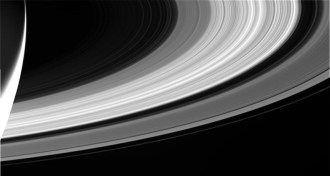 Astronomy
AstronomyThese are Cassini’s parting shots of the Saturn system
In its last hours before plunging into Saturn’s atmosphere, the Cassini spacecraft turned its cameras to some of the system’s well-known features.
-
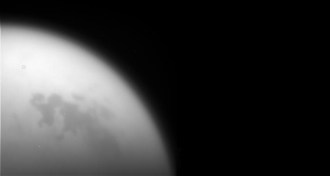 Astronomy
AstronomySo long, Titan. Cassini snaps parting pics of Saturn’s largest moon
The last swing past Saturn’s largest moon sent Cassini heading directly towards the planet — and showed how future spacecraft will explore other moons.
-
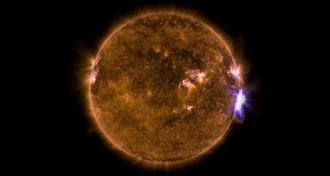 Astronomy
AstronomyThe sun’s strongest flare in 11 years might help explain a solar paradox
The sun tends to release its biggest flares at the ends of solar cycles — and we might finally be able to test why.
-
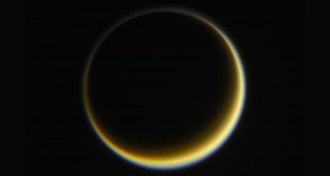 Astronomy
AstronomyFinal flyby puts Cassini on a collision course with Saturn
A “last kiss goodbye” with Saturn’s largest moon sent the Cassini spacecraft on its final trajectory into the planet’s atmosphere.
-
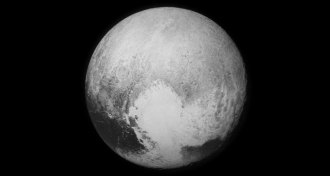 Astronomy
AstronomyPluto’s pits, ridges and famous plain get official names
From Adlivun to Voyager, the International Astronomical Union officially names 14 surface features on the dwarf planet.
-
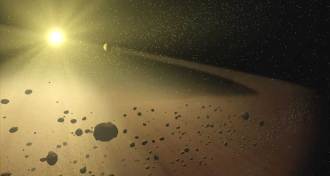 Astronomy
AstronomyTabby’s star is probably just dusty, and still not an alien megastructure
New looks at older data on the weirdly flickering Tabby’s star muddy possible explanations — but it’s still probably not aliens.
-
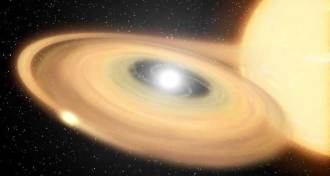 Astronomy
AstronomyStar that exploded in 1437 tracked to its current position
Astronomers have hunted down a star seen exploding in the year 1437 and traced it since, offering clues to the stages of a white dwarf.
-
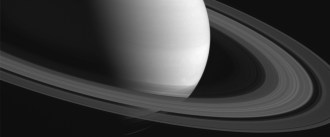 Astronomy
AstronomyAs Cassini’s tour of Saturn draws to a close, a look back at postcards from the probe
As Cassini prepares to plunge to its death, we celebrate the spacecraft's discoveries and breathtaking images of Saturn, its rings and moons.
-
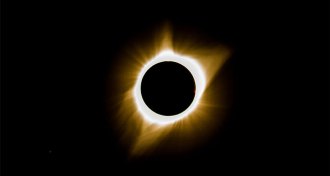 Astronomy
AstronomyOn a mountain in Wyoming, the eclipse brings wonder — and, hopefully, answers
Astronomy writer Lisa Grossman joined scientists on a mountain in Wyoming who were measuring the corona using four different instruments to try to figure out why it’s so hot.